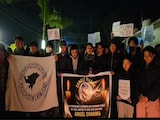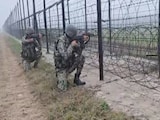The scale of India's rise and its gravitas in the global order can be measured with two simple yardsticks, according to the UK's envoy to India Alex Ellis.
One is how India has set a major benchmark on how to conduct the G20 presidency, Mr Ellis said at the NDTV G20 Conclave today.
The other is how Britain's Indian-origin Prime Minister Rishi Sunak said "Jai Shri Ram" on August 15, India's Independence Day, according to Mr Ellis.
"India tops all three visa categories in the UK - students, visitors, and skilled workers... Did you ever imagine one day a person staying at 10 Downing Street, on August 15, would say Jai Shri Ram? Lord Curzon would have choked," Mr Ellis told NDTV.
Mr Ellis said India's scale and ambition to tackle problems of the world is huge.
"India has broken the mould on how to do the G20 presidency - the scale and ambition to tackle big problems of the world, like global hunger, low growth and poverty," he said.
"Interest in India is a long-term thing. The Ukraine invasion shows the very contested world we are in. India will remain an extremely central country in the world, and we have to find a path to deal with Russia," Mr Ellis said.
Former US diplomat Atul Keshap said pragmatic forward-leaning countries - democracies like India - have an even greater relevance to each other. He said the Ukraine war must end.
"We must focus on ending human suffering... India has been exceptionally generous towards its neighbours... India and US are reacting in a very constructive and positive way to challenges," Mr Keshap said.
Mr Ellis, referring to the scale of the G20 Summit, said this grouping brings at least 80 per cent of the world's gross domestic product (GDP).















